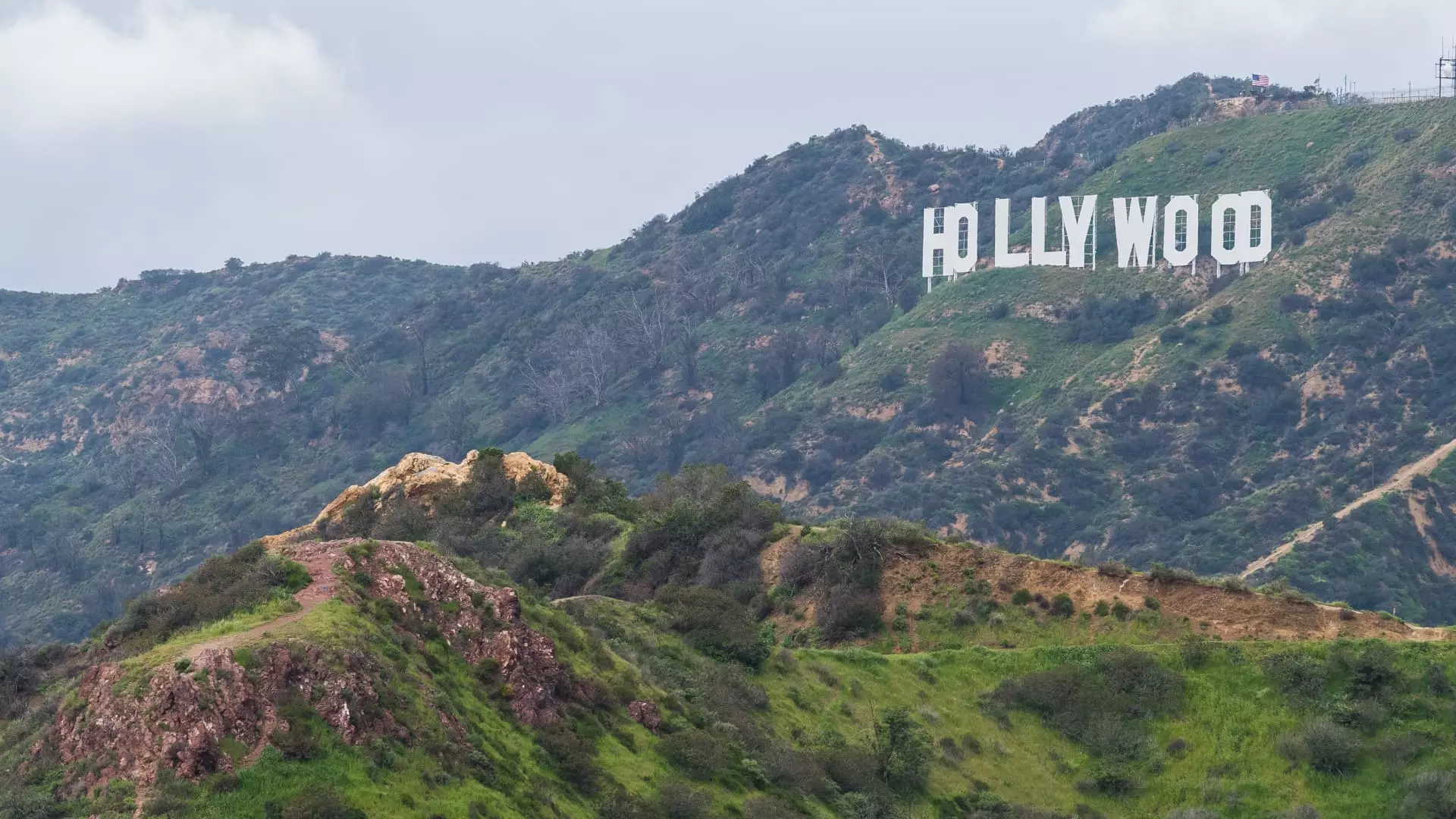As whispers of a 100% tariff on internationally produced films reverberate through Hollywood, one can’t help but visualize a domino effect, where corporate giants and small studios alike tremble at the oncoming downturn. President Trump’s latest foray into economic policy, articulated via his Truth Social platform, suggests a drastic intervention in an industry already grappling with the complexities of globalization. However, the real question remains: what does this mean for the very fabric of Hollywood? The proposed tariff accentuates an unsettling reality for an industry that prides itself on creativity and collaboration across borders.
The Economic Irony: Taxing Creativity
There’s an ironic twist to this impending financial hazard. While Trump characterizes tax incentives offered by foreign countries as a “national security threat,” it raises eyebrows regarding what constitutes a threat in the realm of creativity. Hollywood’s allure has long been its capacity to transcend geographical boundaries, pulling talent from every corner of the globe and harnessing local environments to create authentic, engaging narratives. Imposing such an exorbitant tariff not only undermines this interconnectedness but also does a disservice to the very essence of storytelling. The natural landscapes of New Zealand, the bustling streets of London, or the vibrant colors of India, serve to enrich films, creating a cultural tapestry that is crucial to their success.
Industry Reactions: The Market Takes Notice
In the wake of Trump’s announcement, major players like Netflix and Disney saw share prices plummet. A drop of more than 5% for Netflix paints a stark picture of investor apprehension and industry anxiety. Moreover, the question arises whether these companies, which increasingly rely on international markets for revenue, are prepared to bear the weight of such tariffs. Hits in the box office are not merely numbers but reflections of cultural dialogue spanning nations. If retaliation ensues, as some experts fear, the repercussions could very well undo years of concerted effort in establishing global partnerships.
Unraveling Production Protocols: The Ripple Effect
From a logistical standpoint, the imposition of a 100% tariff introduces chaotic variables within the production process. With many films utilizing multiple international locations for shooting, pinpointing exactly what aspects of production will be impacted raises a plethora of questions. Would finished products be exempt? What about television shows that follow similar international routes? The ambiguity creates an environment ripe for confusion and halts progress in an industry that thrives on seamless transitions from concept to finished product.
The Bigger Picture: A Culture at Risk
Ultimately, this stark shift in policy isn’t solely an economic maneuver; it’s a symptom of a larger discourse around national identity and globalism. Hollywood, despite its extravagant lifestyle, is a cornerstone of cultural diplomacy, often serving as a bridge to foster understanding among diverse cultures. Threatening to isolate it further could have ramifications that stretch far beyond just financial loss. A decline in cross-cultural collaboration may starve the industry of its most dynamic storytelling opportunities, effectively narrowing the scope of what Hollywood represents on the world stage.
In facing this latest corporate dilemma, Hollywood must respond not just with apprehension, but with resilience and innovation, embracing the creativity that has historically defined its essence.

Leave a Reply